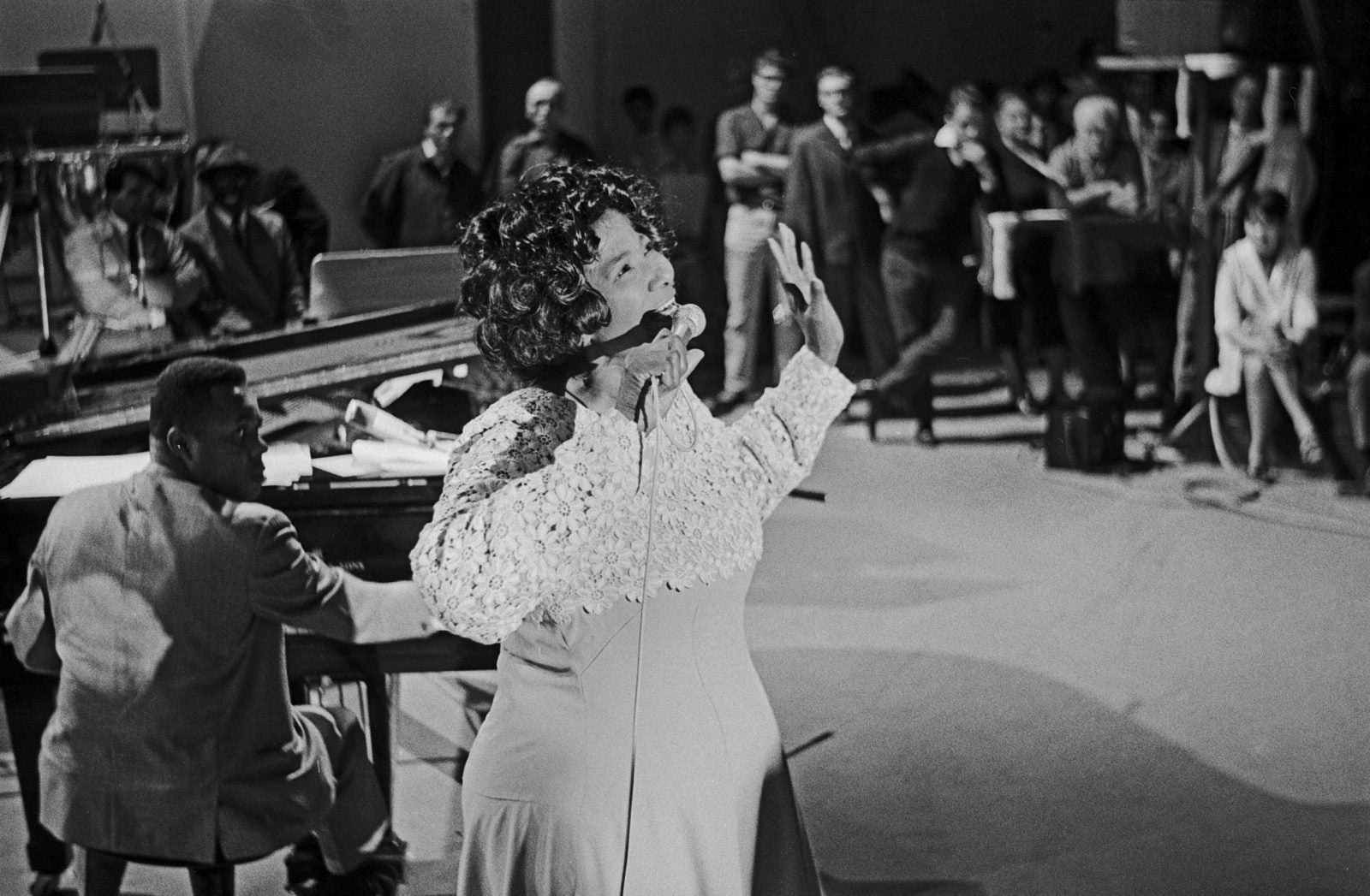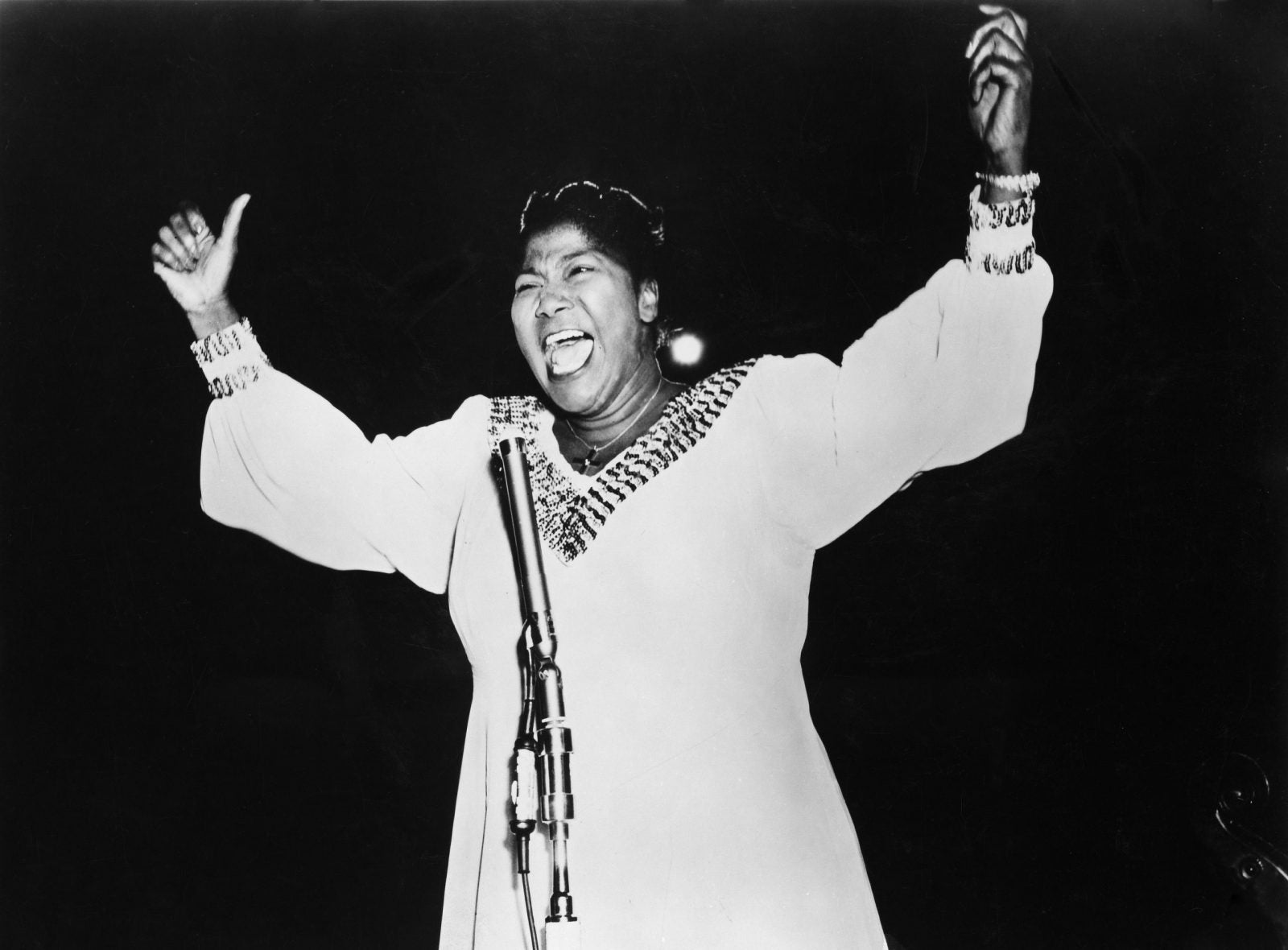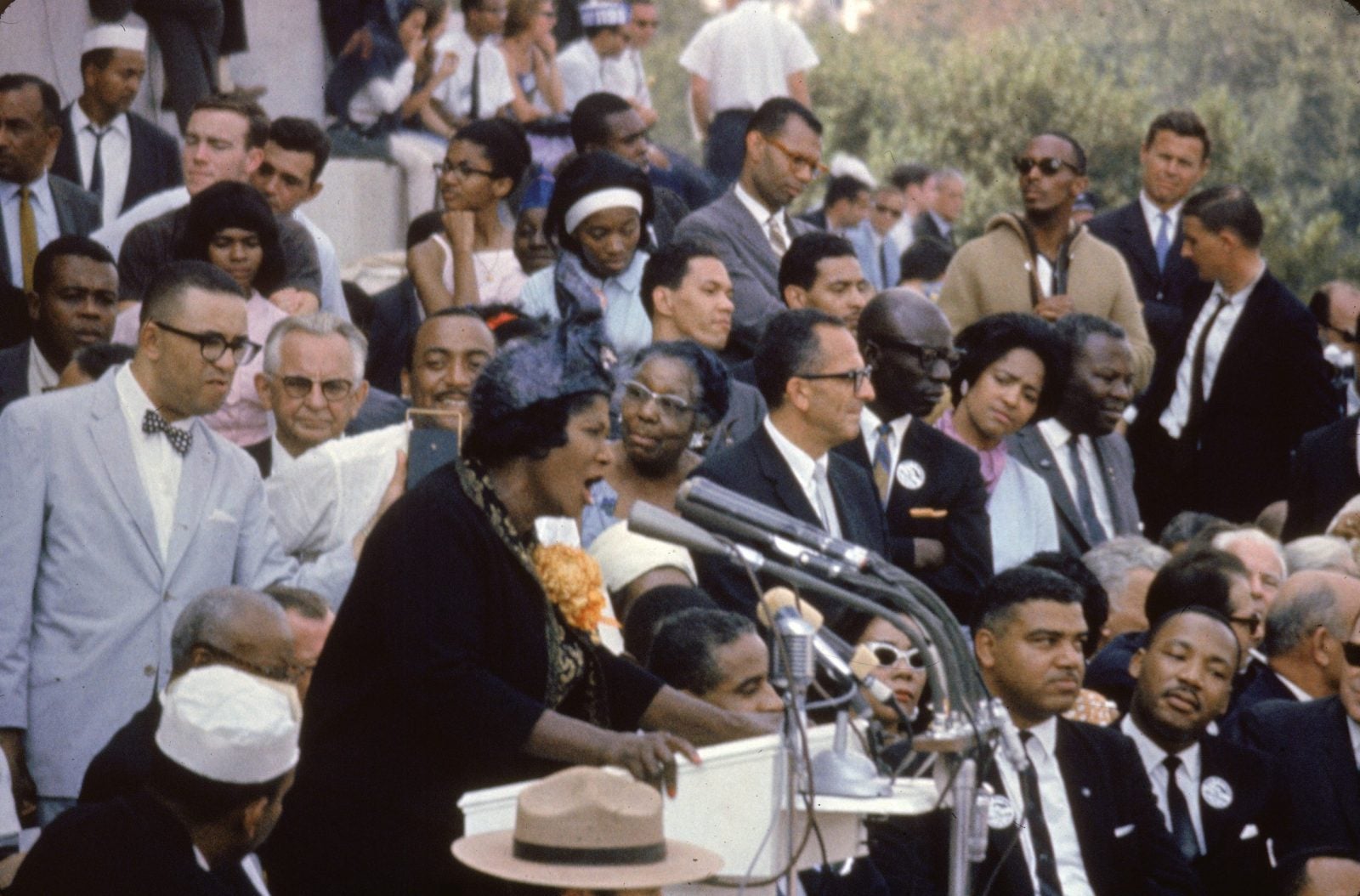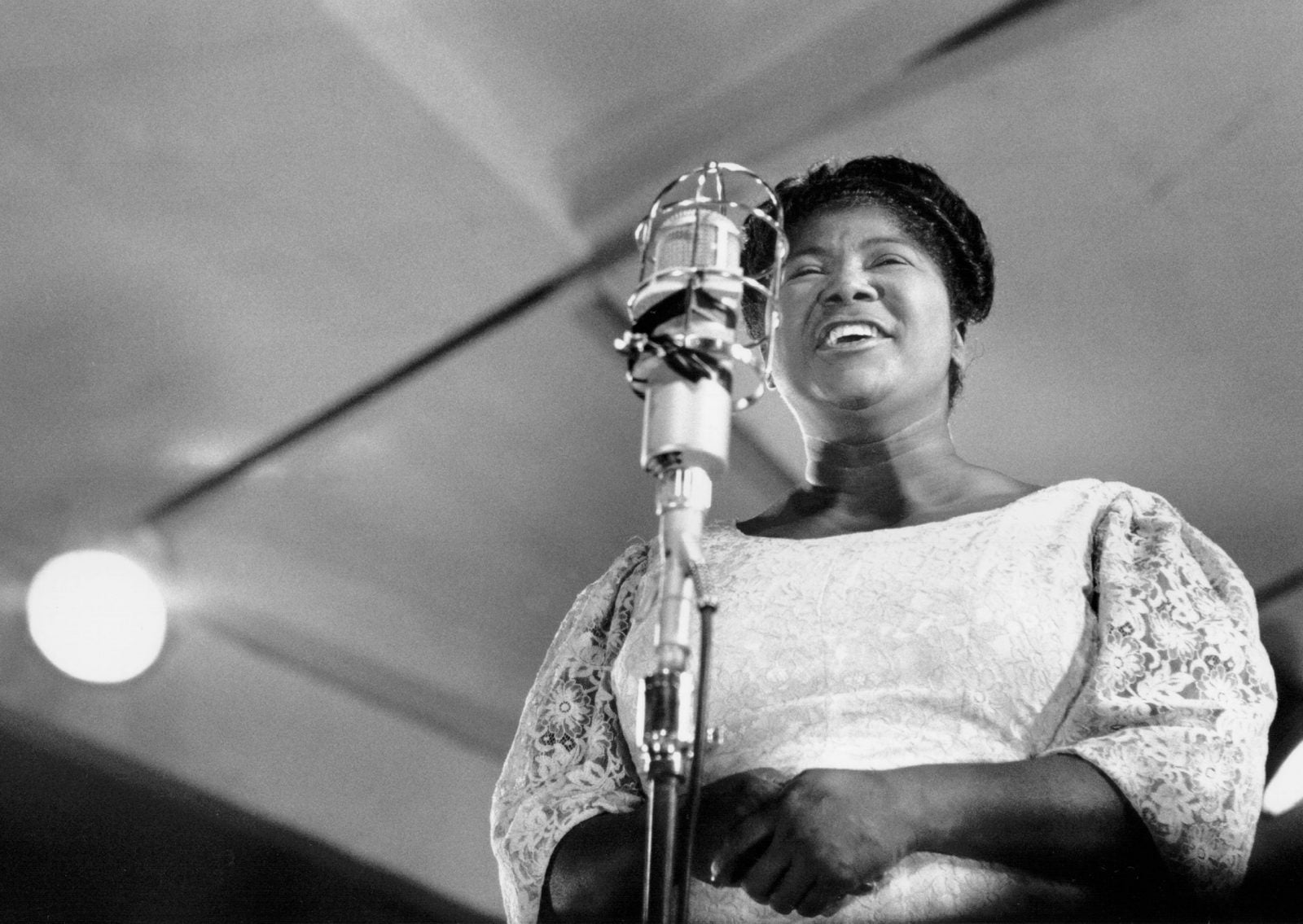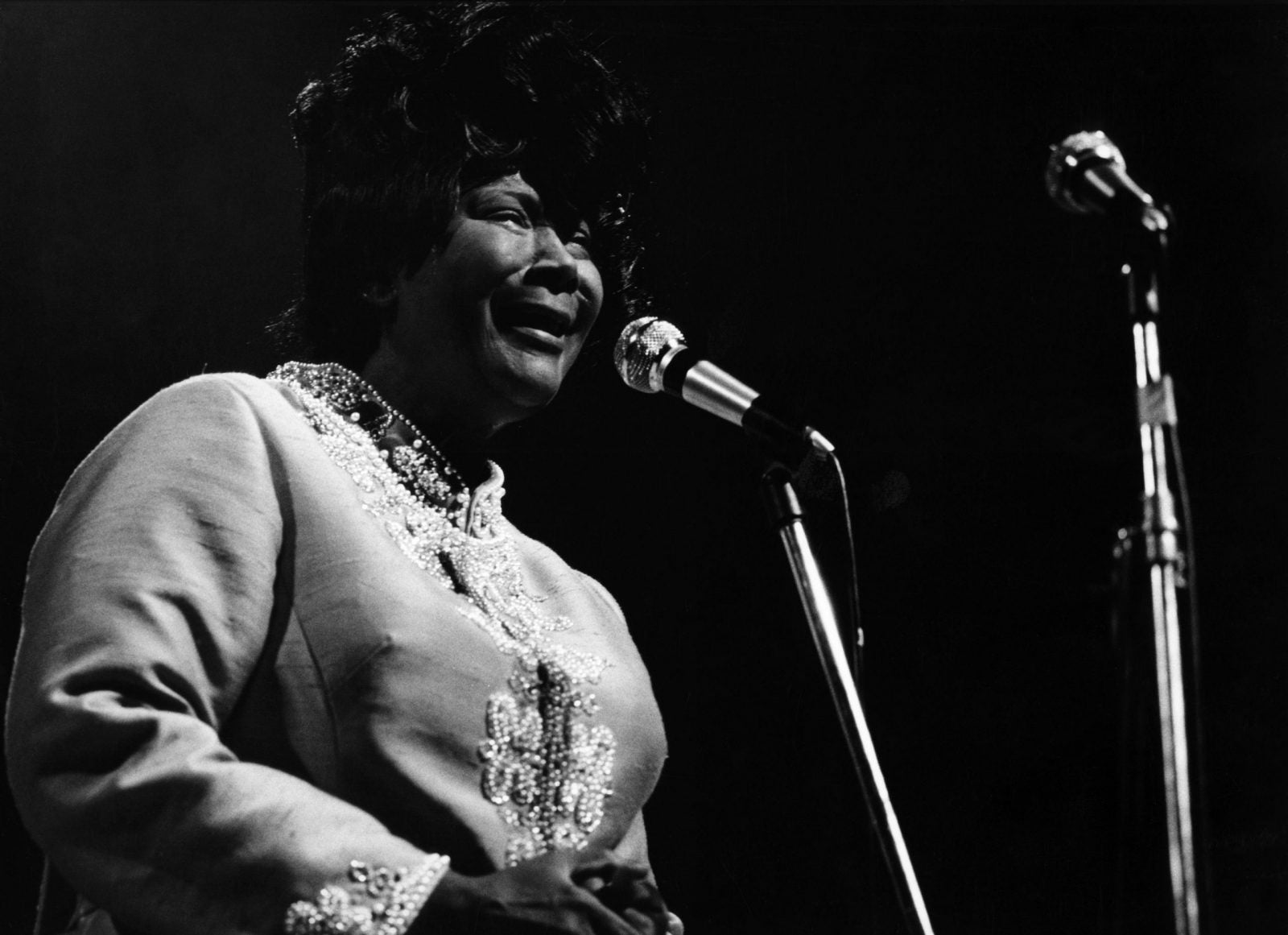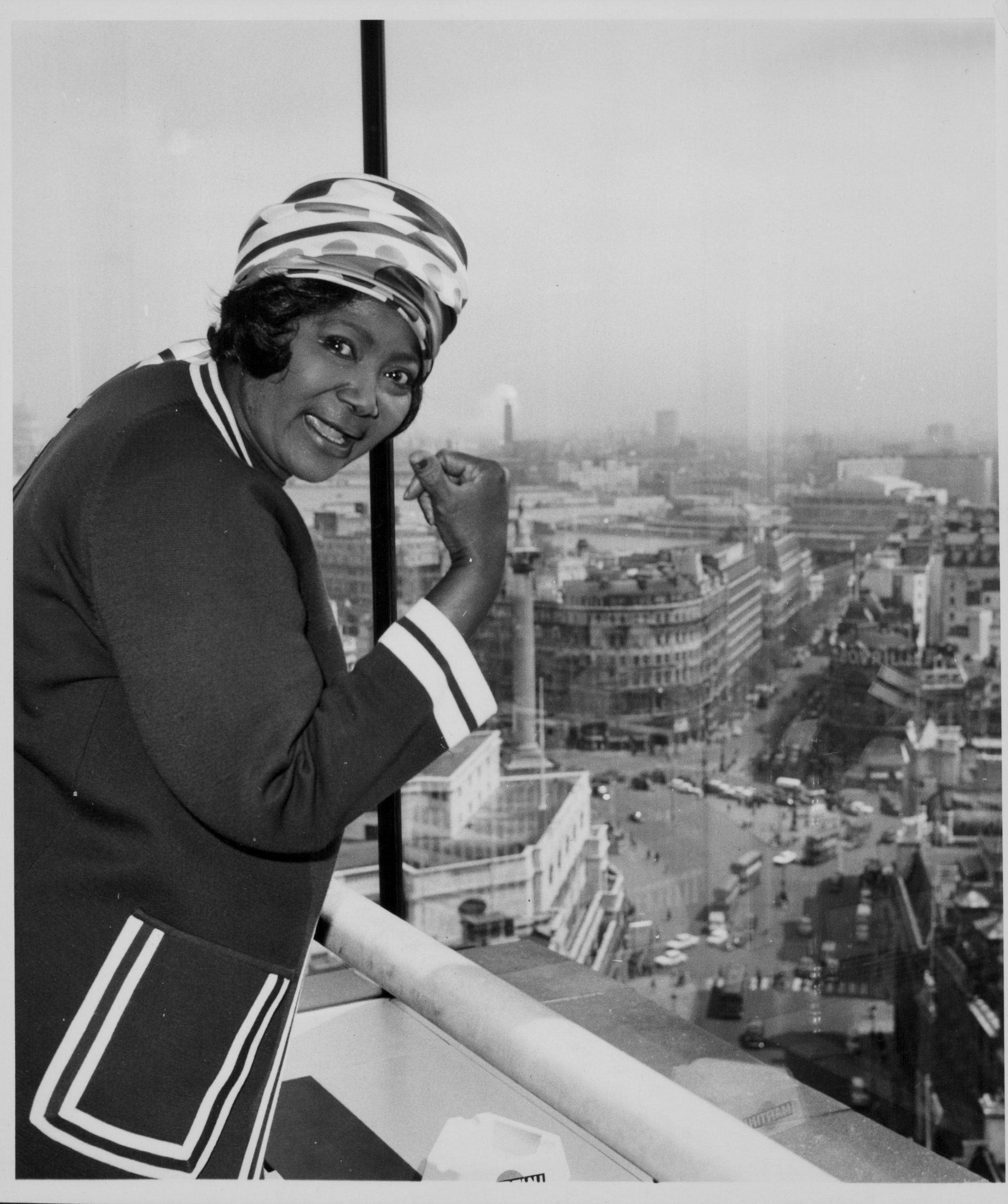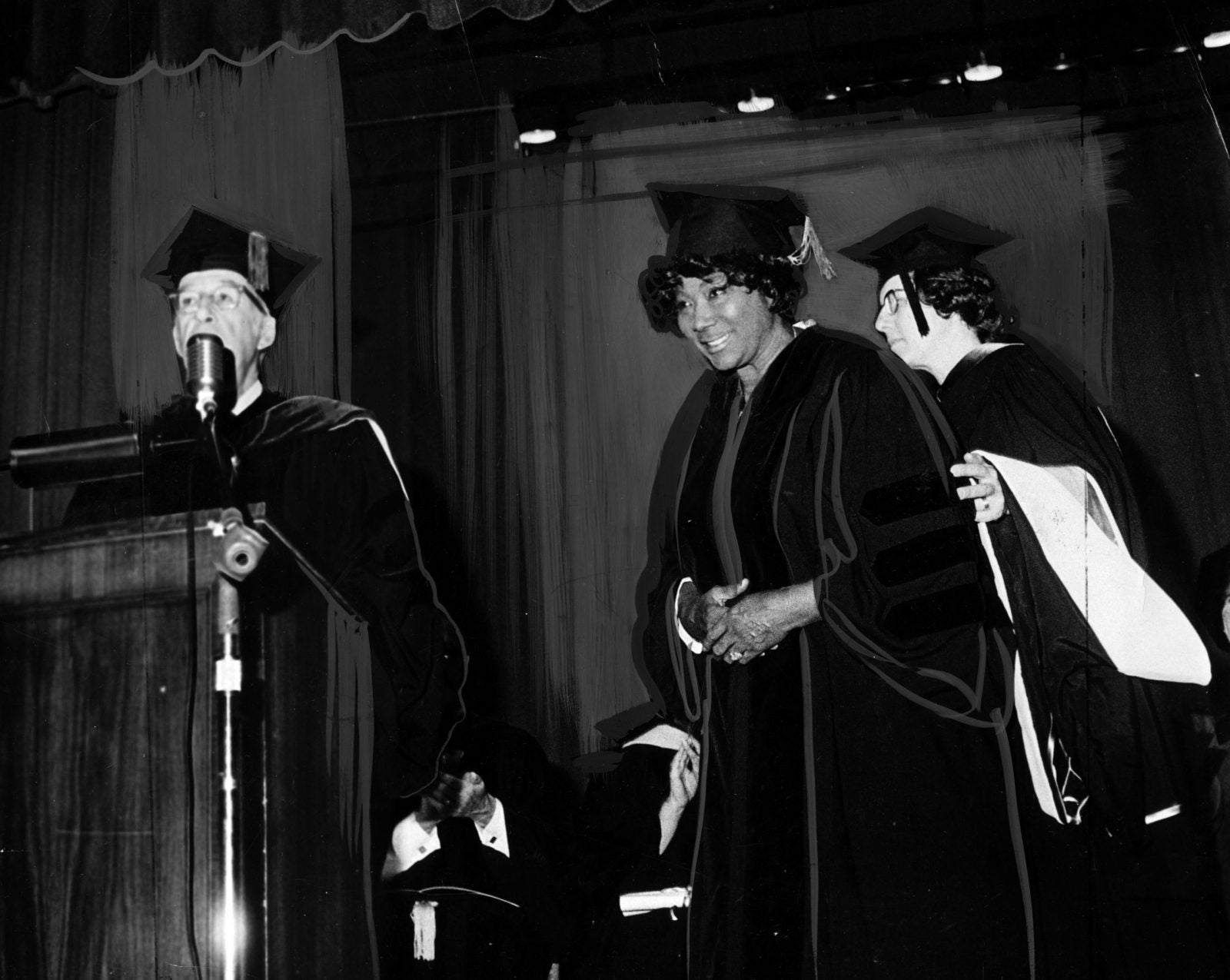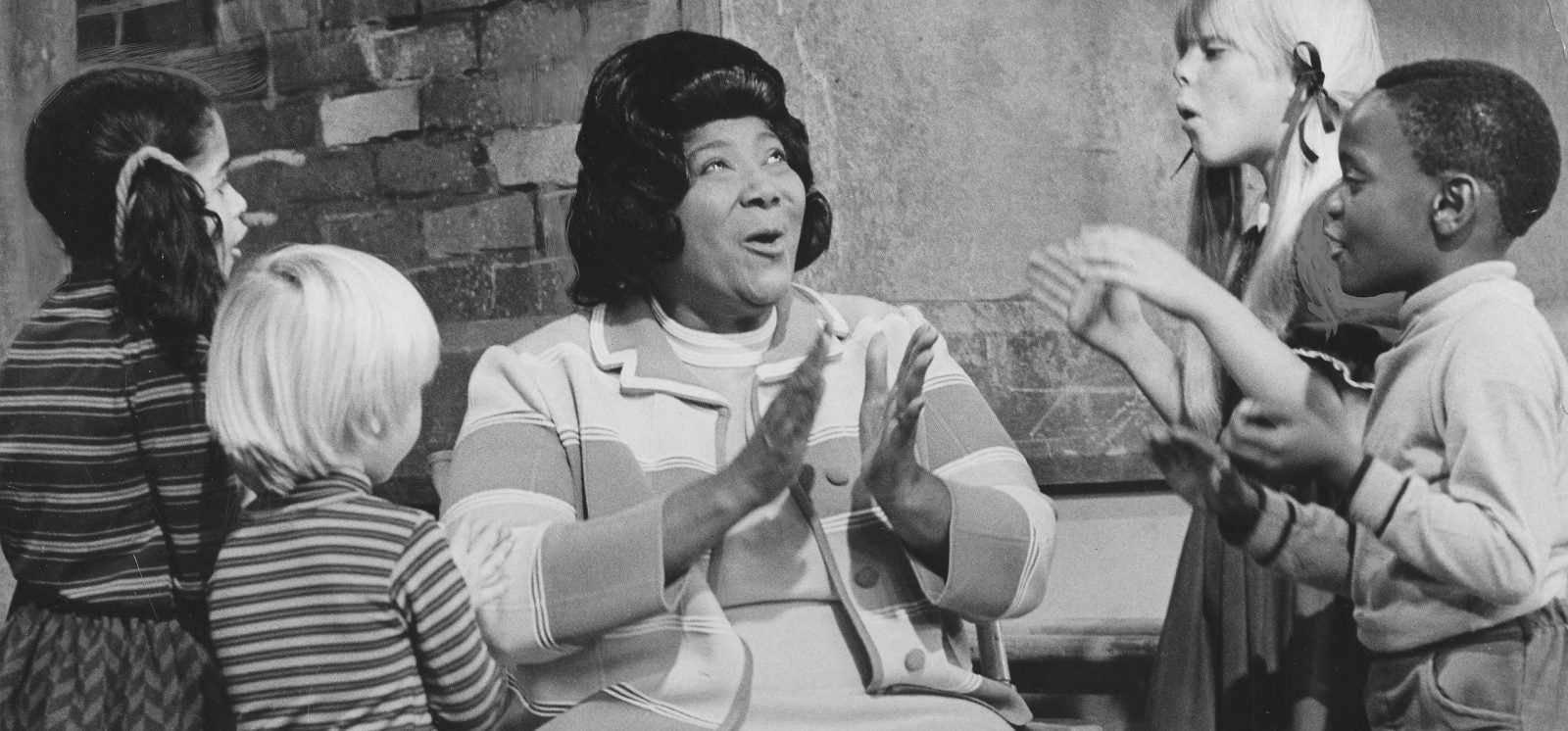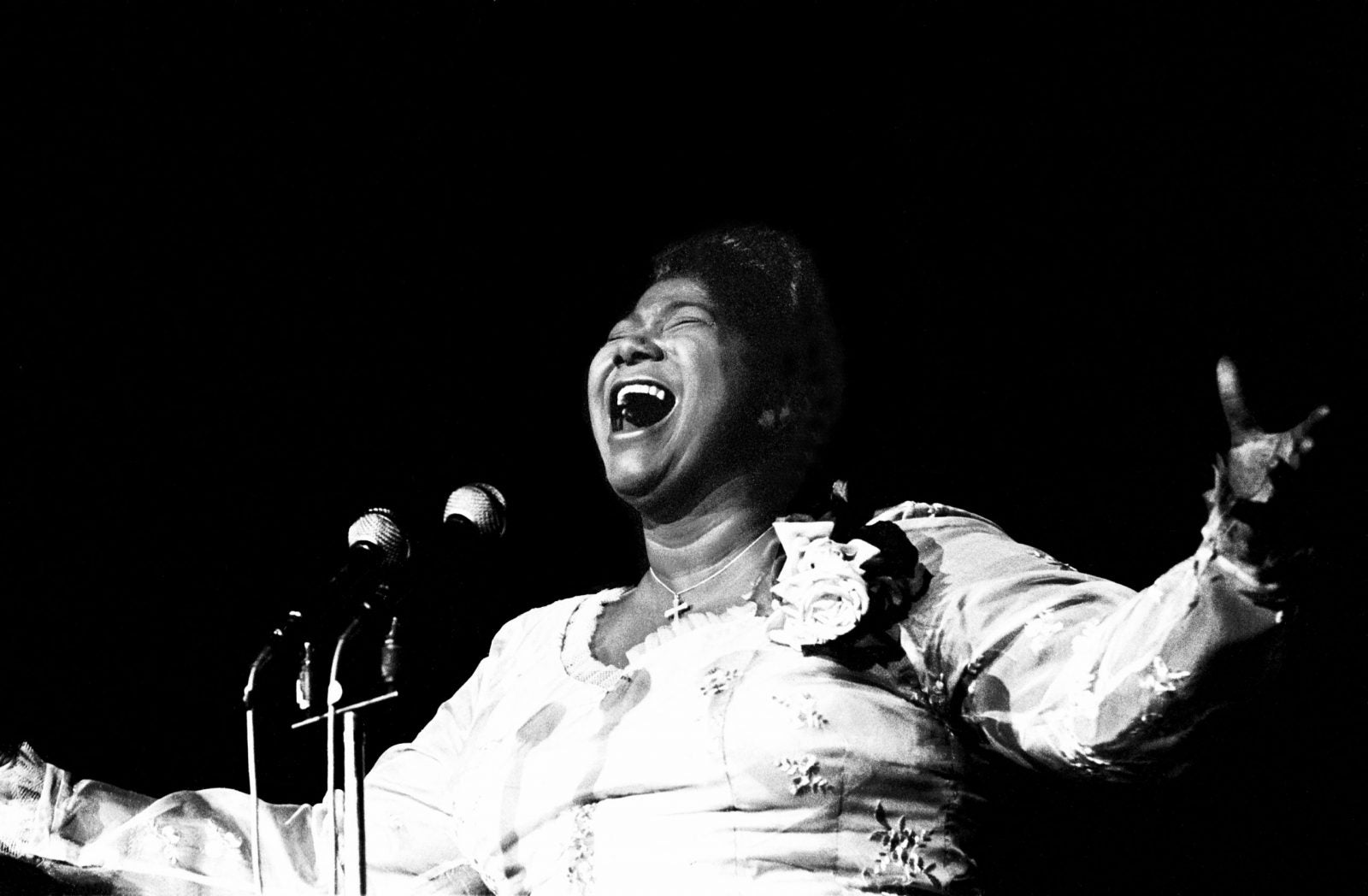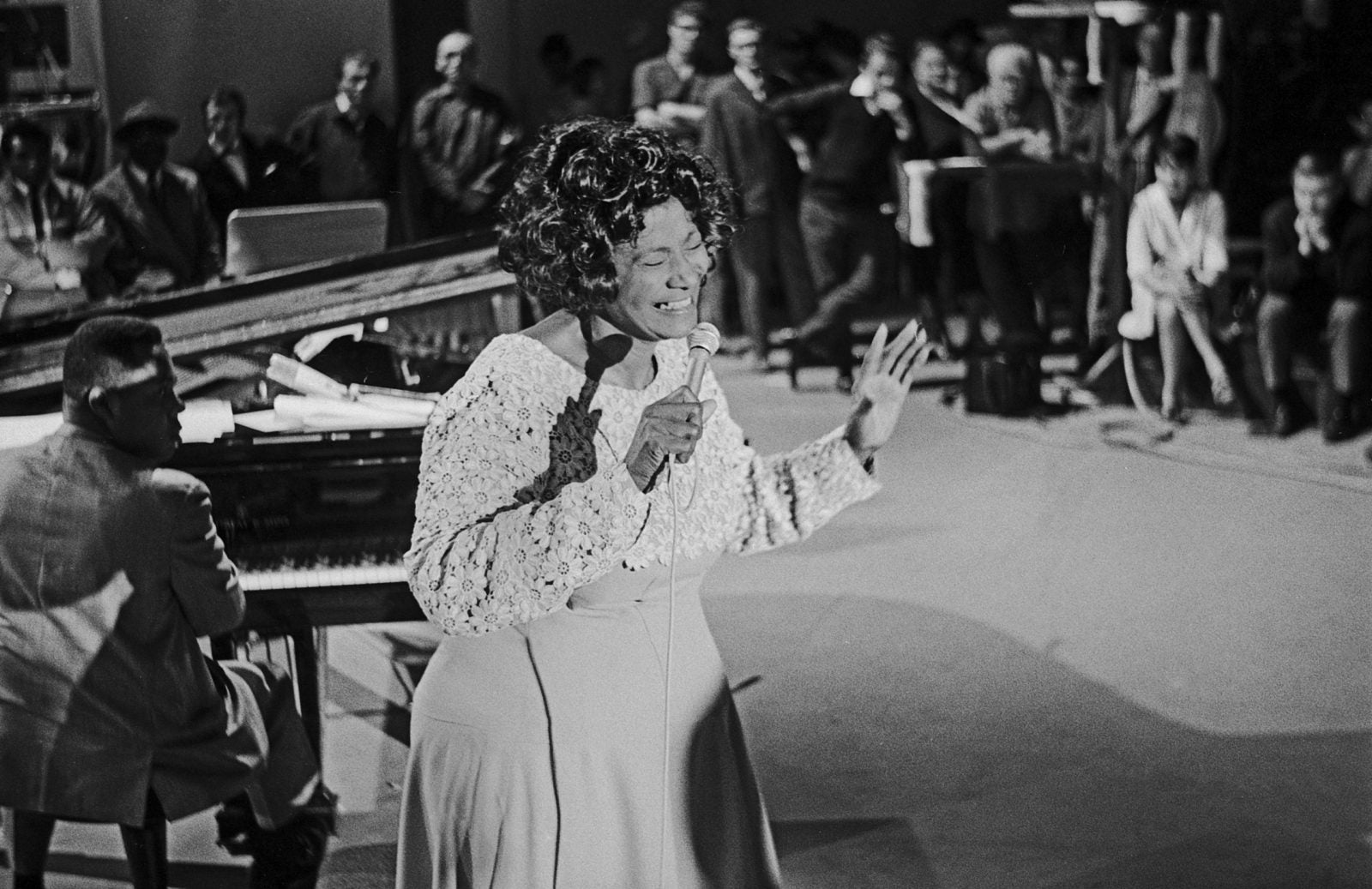Although strictly a gospel singer during her time, Mahalia Jackson set the tone for gospel music and paved the way— in some instances providing literal mentorship— for household names and modern-day artists, who sing both secular and gospel songs. On April 3, Lifetime will premier Robin Roberts presents: Mahalia, a biopic on the iconic singer staring Danielle Brooks, that gives an inside look into the complexities of the life of the legend, which few know much about.
Jackson, who died at the age of 60, lived her life fully according to the word of God. Her voice carried people through from the ’40s to the ’70s, crossing boundaries even when racism threatened her at her front door. Her efforts in her career and community became the blueprint for a number of artists that followed. But only now is the fullness of her story being told. Here are 10 facts to know about the beloved singer ahead of her biopic’s debut.
01
It all started in her youth
Born and raised in New Orleans, Louisiana, Jackson began her singing career at the age of four. Jackson’s father was a preacher so she grew up singing in their church, Plymouth Rock Baptist Church. In 1927, at the age of 16, Jackson moved to Chicago, Illinois, where she sang all over the city in various churches. By 1928, Jackson joined the Johnson Gospel Singers, which was one of the first professional singing gospel groups in America.
02
Taking care of business
Although singing was her passion, Mahalia Jackson ran her own businesses to make money because she refused to sing in nightclubs. Jackson owned her own beauty salon and flower shop, which were called Mahalia’s Beauty Salon and Mahalia’s House of Flowers.
03
She influenced Dr. Martin Luther King, Jr.
Outside of the church, Mahalia Jackson felt strongly about civil rights issues for Black Americans in the ’60s. At the request of Martin Luther King Jr., Jackson was present for the Montgomery bus boycott and other events that pushed inclusion for Black people in America. She even performed for the March on Washington in 1963 singing “I’ve Been Buked and I’ve Been Scorned.” On that day, it is said that King was unsure of what to say and had something else written to address the crowd. Jackson yelled out to him “Tell ‘em about the dream, Martin, tell ‘em about the dream” and Dr. King set his papers aside and delivered what we now know as the “I Have A Dream” speech.
04
Movin’ On Up to Fame
In 1947, Mahalia Jackson was given the title “Queen of Gospel Music,” for her recording of Move on Up A Little Higher. The song became the first top-selling gospel song and catapulted Jackson’s career, giving her international fame.
05
Mahalia Jackson gets a record deal
Article continues after video.
06
Mahalia Jackson’s Sheros
Although Jackson was not one to go to or perform at nightclubs, she was a big fan of the blues. Mahalia Jackson was particularly influenced by Ma Rainey and Bessie Smith. Growing up to the sounds of the blues, much of the musical cadence was seen and put to use in her own gospel music.
07
Mahalia Jackson’s relationship with secular music
Although a fan of the blues, Mahalia Jackson was steadfast in her belief in God and refused to perform at secular places, especially places that sold alcohol, like Disneyland and the Apollo Theater. She did, however, make music with the late and great Duke Ellington. Although some people saw this as hypocritical, given that Ellington was not in fact a gospel musician or singer, Jackson saw this as a musical opportunity and a chance to further her reach.
08
Mahalia Jackson Inspires and mentors
Mahalia Jackson not only reached the top, but also reached back to be a mentor and help to younger singers in her time. She mentored and promoted singers like Aretha Franklin and Mavis Staples and gave singer and actress Della Reese her start and introduction to show business. When Reese was 13 years old, she traveled on the road with Jackson singing on Jackson’s shows. In an interview, Reese recalled Jackson being “more strict” than her own mother. Although Jackson had rules in place for the young artist, Reese recalls learning the art of proficient and effective communication.
09
Mahalia Jackson and real estate
As Jackson accumulated wealth, she invested her money into real estate and housing. When looking for a house in the Illinois neighborhood called Chatham, she was met with a lot of controversy, being a Black woman trying to move into an all white suburb. After being denied by many, she finally purchased her first house from a white surgeon who was a fan of her music. She was the second Black homeowner on her block and was met with much resistance. Her white neighbors shot up her door and threatened to bomb her house, but she remained where she was and eventually many of the white neighbors moved out and gave room for more Black families to move in. The neighborhood eventually became filled with Black professionals.
10
Mahalia Jackson and James Cleveland.
Mahalia Jackson and renowned gospel singer and composer James Cleveland were not only good friends, but also inspiration for one another. On her album, Amazing Grace, his Southern California Community Choir supported her vocals.

